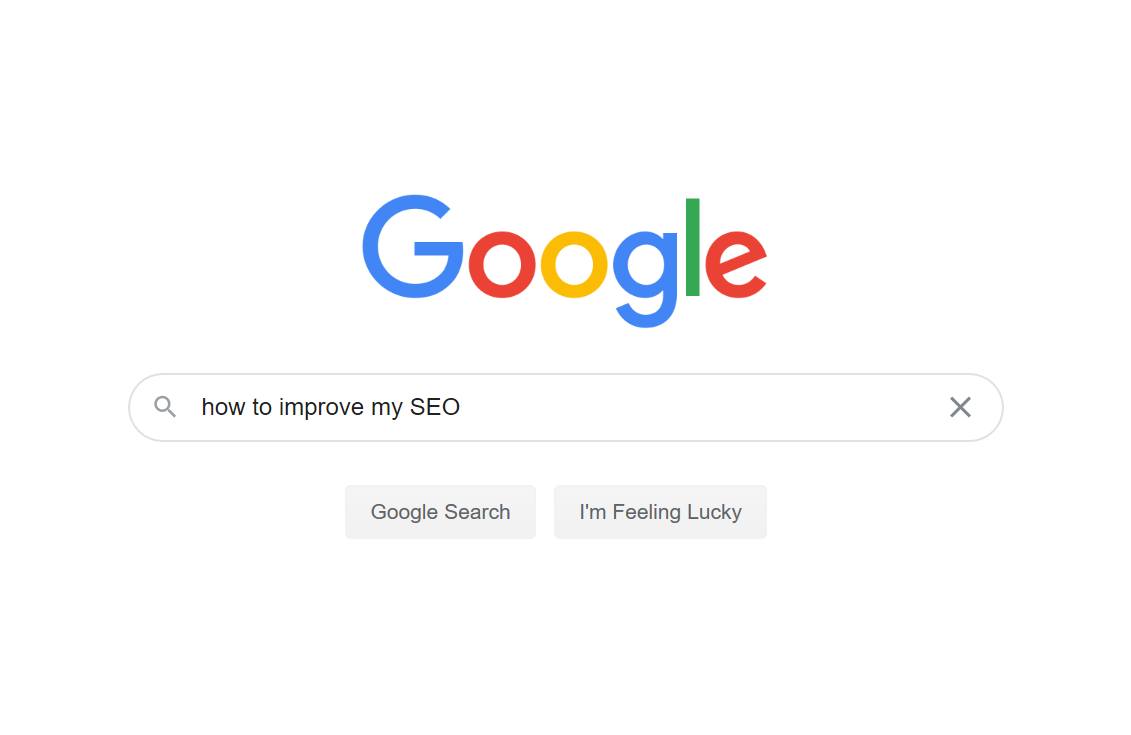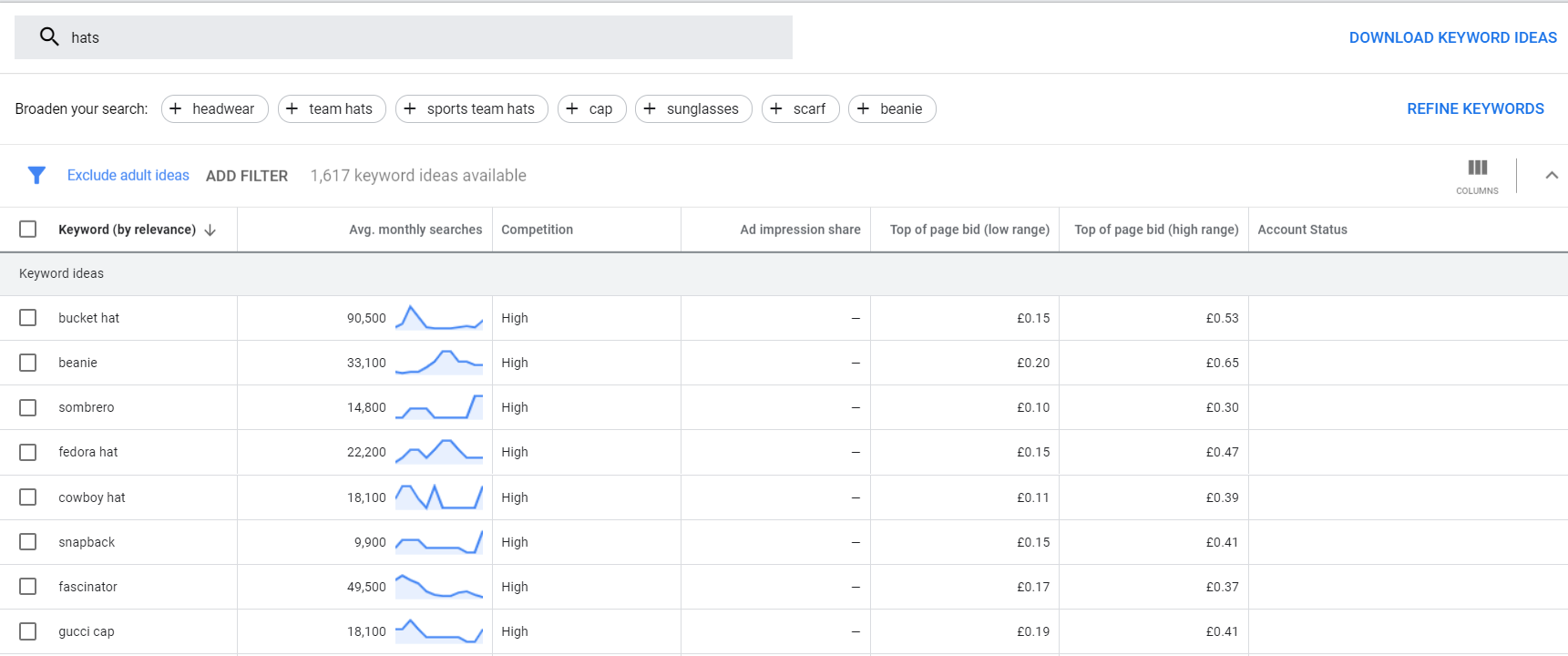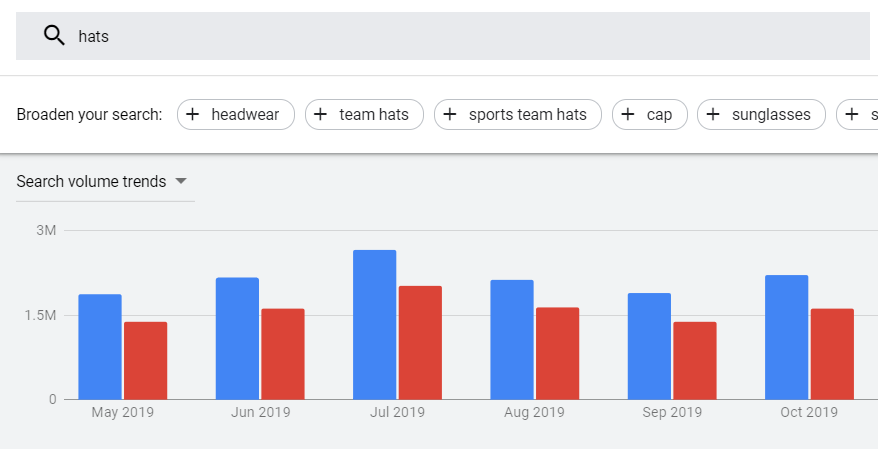How To Conduct Keyword Research In 21 Minutes
''SEO is a marathon, not a sprint''
When it comes to SEO, many website owners expect instant results, but the truth is that it takes time to see the results of SEO. It's a continual process that needs to be worked on all the time, for the work to pay off. Think of it like the gym, if you go to the gym every day for a week, you're not going to lose a stone immediately. You might use a few pounds at first, but if you continue to go to the gym every month, you'll eventually hit that 1 stone loss target. Likewise, you may see a slight improvement in organic traffic to start with, but the major improvements will be made over time!
To implement a successful SEO strategy, keyword research really is crucial. Afterall, you can't go into it blindly! Taking the time to look at what keywords you already rank for *and where you rank), which keywords your competitors rank for (and where they rank), which keywords your audience are searching for (and how frequently), and which keywords are newly emerging. Completing keyword research will help to advise you on which keywords you need to be targeting, then you can begin to plan out exactly how you intend to optimise your website for those keywords, i.e content additions. If keyword research is something that you already do, then ask yourself if you're doing enough! Don't let the ball drop, as you need to constantly be on top of your keyword optimisation in order to remain relevant and competitive. If your website is well optimised, offers a good source of information with great content and usability, then you are much more likely to appear in the search rankings for the users query.
Below, our Lincoln SEO consultants will share some tips with you on how you can improve your SEO through keyword research and targeting.

Quality traffic is key
Targeting lots of keywords in hope of acquiring a lot of traffic is not best practice. If none of that is quality traffic that actually wants to land on your site then they will leave, causing an increase in bounce rate, resulting in in harm to your site rankings. This bouncing of a visitor from your site back to a search page is often called “pogo-sticking”. Google will look and think “Hmm, a lot of people have clicked on this site and then left, this site must be bad” simple as that.
Think smarter
Let’s say for example that you sell hats...
At the minute, with the amount of keyword research that you’re carrying out, you’re probably not really thinking about the wide variety of searches that users could be making about hats. You might have just a few keywords or phrases, maybe 3 or 4, that you’re focusing on such as “cheap hats” or “comfortable hats”. Then, from this, you go over your on (and off) site content and make sure that you are targeting these keywords. This is all well and good, but think about the amount of other sites doing just this.
This is why you need to think smarter...

Keyword Value
Once you conjure up a list of all the keywords that users are searching for, you then need to do something to that list – filter it. When filtering your list, pick keywords/phrases that have more value, and the ones that don’t carry as much weight, try not to focus on as much. Try and prioritise them too, because you don’t want to become a jack of all trades and a master of none.
Focusing on the ones that have the most value can make your website a much harder site to compete with for others, and by targeting these valuable keywords in your content on your site you are well on the way to achieving a higher ranking for that keyword, and hopefully, if you have performed good SEO in other parts of your site, a better conversion rate or whatever your ultimate goal is.
Becoming a master in a particular area is also recognised by Google. If Google believes that you are an authority on a particular area, then you will most likely be ranked for similar things around that area too. Do remember though, that this will take time as I’ve said before, so if you’re not seeing significant changes straight away, then don’t panic!
Keyword Competition
Another thing to think about in your keyword research is the amount of competition you will be facing for each keyword/phrase. Ranking #1 for a specific keyword can vary in difficulty, as shorter, more generic terms prove to have tougher competition than long-tail keywords.
Generally, long-tail keywords make up the majority of searches, around 70% in fact. For most, trying to rank for more of these long-tail keywords is the better option, as there is less competition, they get medium amounts of volume and provide you with a basis to then progress from. Linking back to my example earlier, you may find some long-tail keywords around December time like “wool Christmas hats for kids” and “cheap red Christmas hats”. After using certain tools online and doing some of your own research you could find that there isn’t much competition for these keywords. Thus, targeting these keywords into your site’s content will allow search engines to see that what you provide is relevant and therefore rank higher and provide users with an answer to their needs.
Think about this too: if someone simply searches for “hats”, then they are probably just looking to browse many options. At that moment in time, making a purchase is perhaps not at the top of their priority list. However, someone searching for “cheap red Christmas hats” know what they are looking for, thus meaning they are closer to making a purchase. Because you are catching users later on in the buying cycle, you are more likely to generate a conversion.

Maximising your SEO success
Being able to figure out what keywords are being searched by relevant users, and then implementing them appropriately, can take a long time. However, the rewards outweigh the effort. Next time, try thinking outside the box when you carry out some research. Attempt to predict changes in your customers’ needs to give yourself a greater advantage over your competitors.
At iocea SEO company Lincoln (see what we did there? It's all about the keywords), we have a team of dedicated web developers and digital marketers who are on hand to help your business optimise its websites, web pages and Google My Business listings to achieve better rankings in search results pages. We are not just an SEO agency in Lincoln, but we also offer business websites, website development, website design and specialist eCommerce services.
Please get in touch for more information about our services and pricing.